What You Need To Know About Akin Ricketts, Buhari’s New NPA Board Chairman
MICHAEL AKINOLA
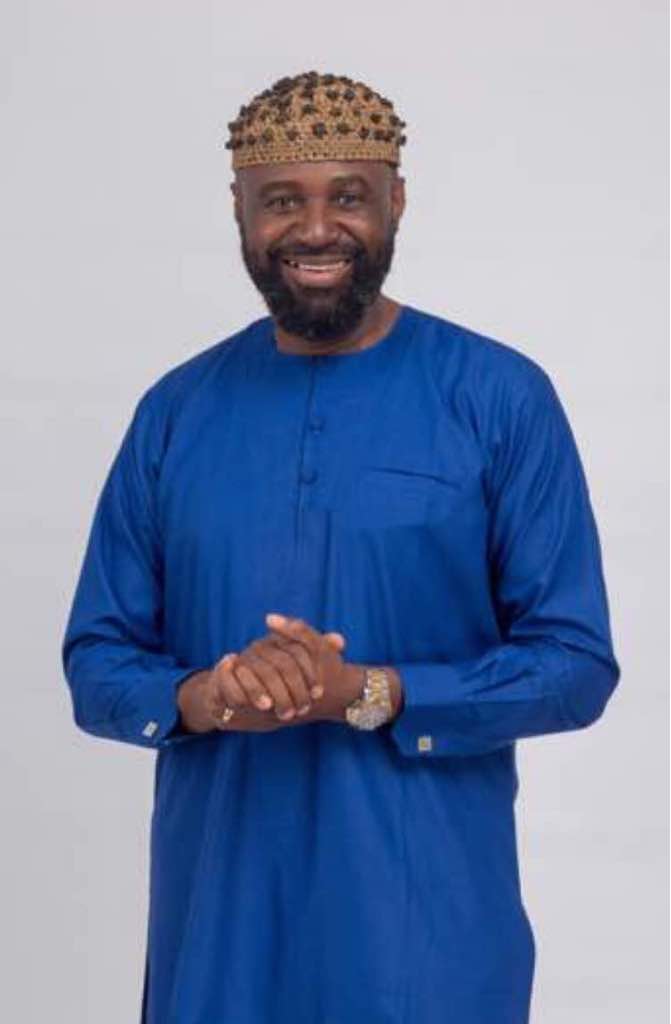
Recently, President Muhammadu Buhari appointed Chief Akin Ricketts as the new chairman of the board of the Nigerian Ports Authority, NPA. An appointment that was hailed by all including critics of this administration.
Little wonder, a group called Good Governance Monitoring, GGM, hailed the appointment of Chief Ricketts.
In a statement by the group’s spokesman, Mr Chidi Igwe, he said the appointment of Ricketts is a confirmation that the Buhari administration is poised to make the NPA better even as it praise the efforts of Ms Hadiza Usman, Managing Director of the NPA, who according to Igwe has been doing a fantastic job since she assumed office.
“We are very confident that the team of Ricketts and Hadiza will make things happen further at the NPA. One thing you cannot take away from this President Buhari is the fact that he knows how to put round pegs in a round hole. We are indeed glad that Ricketts will work in harmony and professionally with Hadiza for the good of this country. So, we say congratulations to a perfect team,” the statement read.
Ricketts, a former Cross River State Commissioner for Information, who contested for the Senatorial seat of Cross River Central District during the last general elections, will be replacing Mr. Emmanuel Olajide Adesoye, who was appointed in 2016 by President Buhari.
The other members of the board are Muhammed Koko, Executive Director; Prof. Idris Abdulkadir, Executive Director; Onari Brown, Executive Director; Ghazali Muhammed, Member; Sen. John Akpanuoedehe, member; Sen. Binta Masi Garba, member; Mustapha Aminu Dutse, member; and Abdulwahab Adeshina, member.
That is however not the story:
The Ricketts have a long history with the Ports which dates back over a century and Chief Akin Ricketts may just be fulfilling his destiny with this new appointment as board chairman of the NPA.
The rich history started from an African-American Missionary to the Congo, Rev. John Edward Ricketts, a black Baptist minister from Stewart Town, Jamaica, and who was born in 1857 in the Caribbean Island of Jamaica.
He was educated at a school run by Baptist missionaries and later worked as a Sunday School teacher at the Stewart Town and Gibraltar Baptist Church near the Island’s capital, Kingston. The Church had strong relations to the American Baptists, and in 1887, at the age of 30, Rev. Ricketts left as a missionary of the American Missionary Union (ABMU) to the Congo.
Rev. Ricketts was quite happy at his new post, especially when his wife Letitia Ricketts joined him some months later. At first, Letitia Ricketts was not enthusiastic to settle in Africa as it took Rev. Ricketts some persuasion to get his wife to consent to their coming to Africa. Mrs. Ricketts supported her husband in the missionary work. Rev. Ricketts built his own house, worked together with his wife as school teachers, and they took care of the Sunday school.
In 1892, Rev. Ricketts and his wife returned to Jamaica. This was because of certain friction between him and his white host which was reported by Arthur Ricketts to be due to what Rev. J. E Ricketts counted as racial discrimination in contents of report to the corresponding secretary.
Katja in his report established the truism of racial discrimination to Black Americans in the American Baptist Policy of the time.
In 1895, Rev. J.E. Ricketts and Leticia Ricketts were back in Africa with Mojola Agbebi who had visited Colwyn Bay in Wales, but to the British colony of Nigeria. Rev. Ricketts came back by a merchant ship to Africa via Great Britain, where he had attended – with financial support from a British philanthropist – the African Institute in Colwyn Bay in Wales. The Institute was founded in 1889 as a practical training centre for indigenous missionaries from Africa by a returned missionary from the Congo, William Hughes. The Institute catered specifically for the training of Africans, although some African-Americans like Ricketts were admitted as well. The students were equipped to work independently of Western denominational missions or else in a non-dependent partnership with White missionaries by plying the trade learned at Colwyn Bay.
At Colwyn Bay, Rev. Ricketts made contact with several Africans, among them two Nigerian students, Prince Ademuyiwa Haarstrup and Mr. Mojola Agbebi who were particularly interested in the vision of the Colwyn Bay’s Institute of empowering Africans.
The Agbowa Industrial Mission
Mr. Mojola Agbebi , a Yoruba by birth, was highly impressed with the “practical salvation” of Rev. Ricketts’ industrial mission, where student’s time was split between farm and school. Upon arrival in Lagos, and with the support of his friend, Ademuyiwa Haarstrup, Rev. Ricketts was able to find a suitable place in the little town of Agbowa, in Ijebu Remo District.
Haarstrup, a native, introduced Rev. Ricketts to the local authorities, and Rev. Ricketts was given land by the Baale Ogujah, the local ruler, to build a house and a church. Ricketts learned the Yoruba language easily, this coupled with his friend’s goodwill made it possible for him to enjoy a cordial relationship with the natives.
Rev. Ricketts began preaching the gospel and also opened a Sunday school, where both children and adults were taught reading and writing. In wisdom, Rev. Ricketts and his wife concentrated their efforts on the education of the children since the adult population was somewhat resistant to the gospel.
Besides the school, they founded the church, and the industrial farm which was to become the center of the mission.
The young pupils visited and attended the school in the morning, and in the afternoon. They worked in the fields or received some vocational training. Rev. Ricketts offered various courses (e.g. in carpentry and joinery). A variety of crops: bananas, coffee, sugarcane, and cocoa were grown, not only for home consumption, but also for the markets as far as Lagos. It is worthy of note that unrefined sugar was produced for consumption and sold to Lagos also.
It is also noteworthy that Mr Mojola Agbebi, his contemporary and friend (though three years his junior) from Colwyn Bay really appreciated the success of the industrial mission and so encouraged Ricketts to come and establish an industrial mission in the Lagos vicinity. Union Baptist Church, Lagos became the ultimate beneficiary of the planting. Furthermore, the industrial mission school was approved by the Federal Ministry of Education as a special school.
The work of Rev. John Edward Ricketts brought spiritual and educational development to Agbowa-Ikosi, while also boosting agriculture among natives. These in turn yielded members for the First Baptist in Lagos with effect from 1906 when the first product of the industrial mission school became the pioneer staff of the Federal Government Printing Press at Broad Street, Lagos.
One year after, the Agbowa Industrial mission opened on February 1, 1896.
Rev. Ricketts’ five children and his sister Mary Monroe then came to Nigeria. Mrs. Hinds-Smith, the British philanthropist, who had already paid for Rev. Ricketts and his wife’s passage to Wales and to Nigeria, took care of the travel expenses of the rest of the family as well.
The eldest son, Gershon Adolphous Ricketts (known as “Baba Ikosi”) – who later worked in Lagos with the Baptist Church as a clerk; Eliza Ruel Ricketts (“Baba Ikorodu”); Latima Llewelyn Ricketts (“Baba Ibadan”) worked in Abeokuta and Ibadan with the Agricultural Department as an horticulturist; Miss Mary Lewis Ricketts (“Iya Ibadan”) married Mr. Phelan, a Yoruba of Lagos origin; Mr. Joshua Anderson Ricketts, carpenter, boat builder and engineer; Caleb Samuel Ricketts, (Baba Elero), also a carpenter at No. 16, Abeokuta Street, Ago-Egba, Ebute Metta; and Catherine Setilda Ricketts, who married Mr. Schakleford of Schakleford Bread fame at Sangross in Lagos. They were the first descendants of Rev. J.E. Ricketts. All these were Jamaican born besides Caleb and Catherine and a child who died in infancy. The five Jamaican born joined their missionary parents in Nigeria and they arrived in June 1897.
Rev. Ricketts acted as a ‘representative missionary’ of the Colwyn Bay Training Institute, and was affiliated with the American Baptist Mission at Lagos, which supported Ricketts’ endeavour financially.
The Agbowa Industrial Mission presented a rather unique combination of independent church, mission station, and commercial family business. His achievement was rather impressive. Besides the Church and the school house, more buildings were erected, and at school, different courses were offered, and the rent of the land was paid regularly.
It was observed that Rev. Ricketts single-handedly turned the Agbowa industrial mission to a prize-winner at every Agricultural Show in Lagos. He formed a Farmers’ Association of about 800 people. Under his direction the town became remarkable for its state of cleanliness and Western styled durable buildings. Hygienic measures introduced drastically reduced incidences of smallpox.
Another notable achievement was palpable peace and joy in many homes due to the influence of Rev Ricketts through regulations on marital relationships.
Rev. Ricketts served as a physician, farmer, adviser, police, and school teacher. He was also a ‘representative of the colonial state’. Beyond preaching and teaching he was stationed as a policeman in the rank of a corporal in Agbowa. There were two other policemen stationed in Agbowa who took orders from him and with their help the town was kept clear of weeds and clean of unburnt offerings. They greatly assisted in building the fair weather road between Agbowa and the Jetty at the waterside, build by the towns people on Ikosi market days.
Somehow, though black, the existence of colonialism did not seem to bother Rev. Ricketts or to contradict the Christian tenets on which his work was based.
Though the Agbowa community highly regarded Rev. Ricketts’ economic achievements, there was a chunk of people who detested his Christian teachings which to them was derogatory to their traditional beliefs. For instance, Ricketts’ view that idols and many traditional beliefs of the people were mere superstitions was greatly resisted. His interference in African local customs was met with some reluctance as his teachings sought to encourage destruction of idols and fetish groves. He also discouraged the installation of chiefs under such rites.
His death in 1908 put paid to the Agbowa Mission.
Years later, some of his children joined forces and went into ferry building, capitalizing on the vast but largely untapped Lagos waterways. So began a decades’ long water transportation business, another phase for the family. It operated under Ikosi Industries Limited, which was incorporated in 1930. The Company, an example of an early Pan-African enterprise, survived the 1960s and was still in business in independent Nigeria.
The first motor-ferry was built in the early 1920s by the founder and the Chief Executive Officer, Late Chief Joshua Anderson Ricketts usually called the “manager”. He was assisted by late Mr. Gershon Adulphus Ricketts and late Mr. Eliza Ruel Ricketts. The engine that propelled the first motor-ferry built was supplied by late Mr Awendolgn Wynter Shakleford. By 1928, the first motor-ferry named “Leticia” was put into operation to convey passenger from Idumagbo, Ebute-Ero in Lagos Island to Ebute-Ricketts (Jetty), as it was popularly called then in Lagos Mainland. Some other members of the family later joined the business including late Mr Ferdinand Staine Morrocco-Clarke, and late Mr Caleb Samuel Ricketts.
Subsequently, agricultural, agro-allied and agro-commercial activities were being provided by the company. The company however grew enormously, leveraging on providing free agricultural and industrial training, indiscriminately to the public, in order to develop and raise artisans in the industries, in the local community and as well as Nigeria at large, thereby establishing Ikosi Industrial School. Agricultural activities included were cocoa plantation which included grains and cereals. Agro-allied activities provided by company was production of sugar, timber, oil-palm and feed mill, while agro-commercial activities included provision of cocoa, kola-nuts and timber for trade, export and development of the Railway track.
Between 1922 and 1965, a total number of 14 motor-ferries were built by the company while 2 ferries were purchased making a total of 16 passenger boats. The motor-ferries sailed along the lagoon from Lagos to other towns in the old western region namely, Ikosi, Ikorodu, Epe, Ejirin, Atijere, Okitipupa and Sapele. The water transportation business was very lucrative, since there was no road that linked Lagos with Ikorodu then, so passengers from other parts in the western region coming to Lagos had to board the Ikosi Industries motor-ferries at Ikorodu which conveyed the passengers to Lagos through the waterway. The motor-ferries were popularly called “Ricketts” by the passengers. The first shipyard/slipway was built at 1, Dawodu lane, Ebute-meta around 1930, and served as a harbour where the motor-ferries were built and pulled out the water for repair and from where they were launched.
However, the use of the slipway at No. 1, Dawodu Lane was short-lived when the Carter Bridge was constructed and the road was opened, which separated the lagoon from the slipway, preventing a pass through of the motor-ferries to the slipway. This put an end to the use of the slipway at No 1 Dawodu lane, because the motor-ferries no longer had access to the slipway. This however, led to the construction and relocation of the slipway to Ikorodu Beach at Ile Eletu, Pakodo, Ikorodu, in the 1930s.
The slipway at Ikorodu which also served as an harbor, was used uninterruptedly to build and repair the company’s motor-ferries until 1973, when the military government of Lagos State compulsorily acquired the slipway, together with the properties of Ikosi Industries Limited situated on the land and the entire 6.24 acres of land for the Nigerian Ports Authority, where port container lighter terminal was built, in a bid to decongest the existing ports which were heavily congested.
With the compulsory acquisition of the Ikosi Industries Ltd land and properties at Ikorodu beach during the military regime, there was no more slipway where the existing motor-ferries could be repaired or new ferries built. This led to collapse of water transportation operation of Ikosi Industries Limited in late 1970s. In fact, the last three boats that were operating before the military government acquisition of the shipway sank one after the other in Ebute-Ricketts in Lagos Mainland culminating in the end of the boat building and launching together with marine motor engineering sector of Ikosi Industries Limited.
Before its collapse, Ikosi Industries Limited was poised to be the leading provider of water transportation services, agricultural services and educational services through human capital development via industrialization.
Ikosi Industries grew into a full fledged motor-ferry manufacturing industry from the successful construction and launch of the first motor-ferry, a 50 passenger motor-ferry with 30km per hour engine capacity; named “Leticia”, after their late mother, Mrs Leticia Ricketts.
More successfully, improving upon this feat, Ikosi Industries Company built a double decked motor-ferry which conveyed 150 passengers conveniently, moving with an average speed of 40km/hour. However, all together, Ikosi Industries Limited constructed 14 motor-ferries between 1922 to 1965. Motor ferries built by Ikosi Industries Ltd were Leticia, Endeavour, Charity, Duty, Harmony, Tax , Labour, Service, Endurance, among others. While the two motor ferries bought were Sweat and Chaser.
It is also worthy to note that Ikosi Industries Limited served the Lagos Colony (now Lagos State), the whole of the Western Region and Nigeria at large. Indeed the Company had from its establishment engaged in Corporate Social Responsibility: Free industrial education was introduced by Ikosi Central Industrial School in 1948, the industrial training school of Ikosi Industries Limited, fostering the development of skilled apprentice for socio-economic growth and development, as well as the educational development of Agbowa-Ikosi, Lagos State and Nigeria at large.
The Ikosi Central Industrial School indeed trained some eminent personalities in Nigeria who became top government officials in the past.
Christopher Akinsanya Ricketts, the scion of the great Ricketts Family and newly appointed board chairman of the NPA, recalls a childhood spent around the jetties, travelling in a few of the launches and learning how the business worked.
“At a point, the fleet had about 14 boats, which were given exotic names like Charity, Endeavour, Harmony, Duty, Labour, Tax (a double decker), and Service, and the routes included Epe, Ikorodu, Okitipupa, and Sapele,” said the third-generation Ricketts.
He added that water transport became synonymous with the family’s name (Thus Ricketts became a household name).
“There were no roads, so people relied more in water transport to get from their locations to the markets especially. Our ferries were a large percentage of the vessels in operation. When the Lagos-Ikorodu road was opened in 1952, people found the travel time shorter, and there was a gradual shift; expectedly, the company’s income began to dip. It wound down its operations in 1964,” he recalled.
After decades of inactivity, the family has plans to re-enter the ferry business. Ahead of full operations, an office on the ground floor of one of the family’s properties has been renovated.
“We are awaiting the approval from the state government to go to the next phase with our technical partners,” says another great grandchild, whose mother was a Ricketts.
The Agbowa Industrial Mission, run by Reverend John Edward Ricketts, . . . opened new economic venues for the local population. The activities encouraged . . . mutual relations between Africans on both sides of the Atlantic and paved the way for Pan African initiatives that in the long run helped to overcome colonialism.
“The generation of Rev. John Edward Ricketts are all over Nigeria including Lagos, Rivers, Abuja, Oyo, Kwara State among others”, his descendants settled down in various states in the country and are married to people from different ethnic groups in Nigeria.




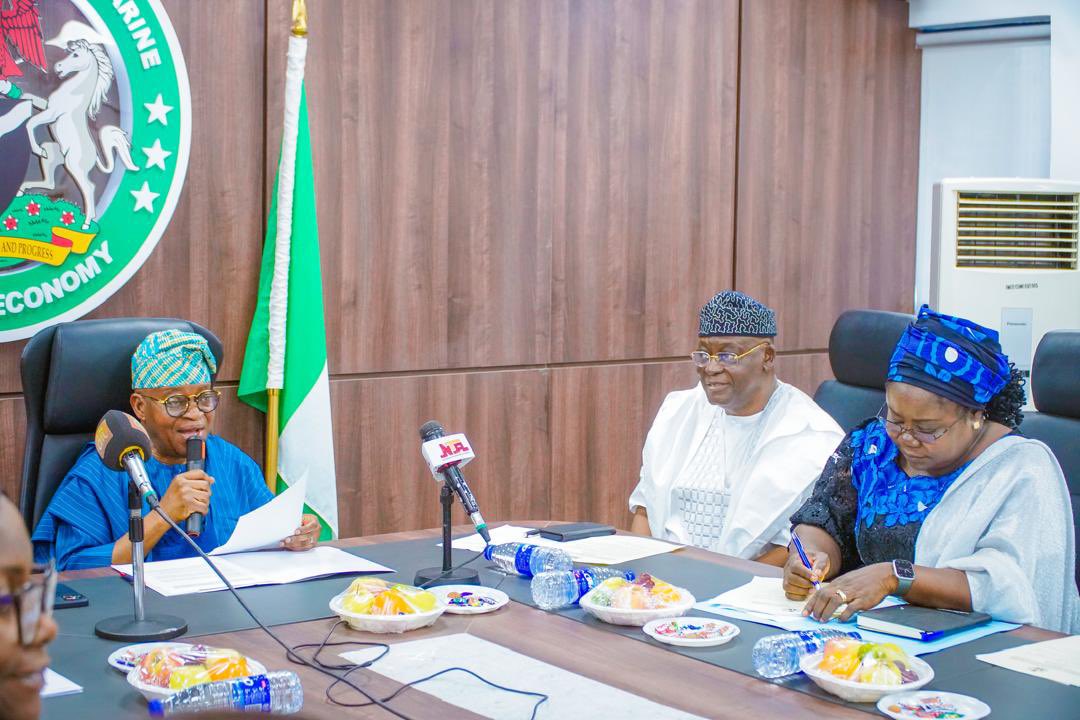
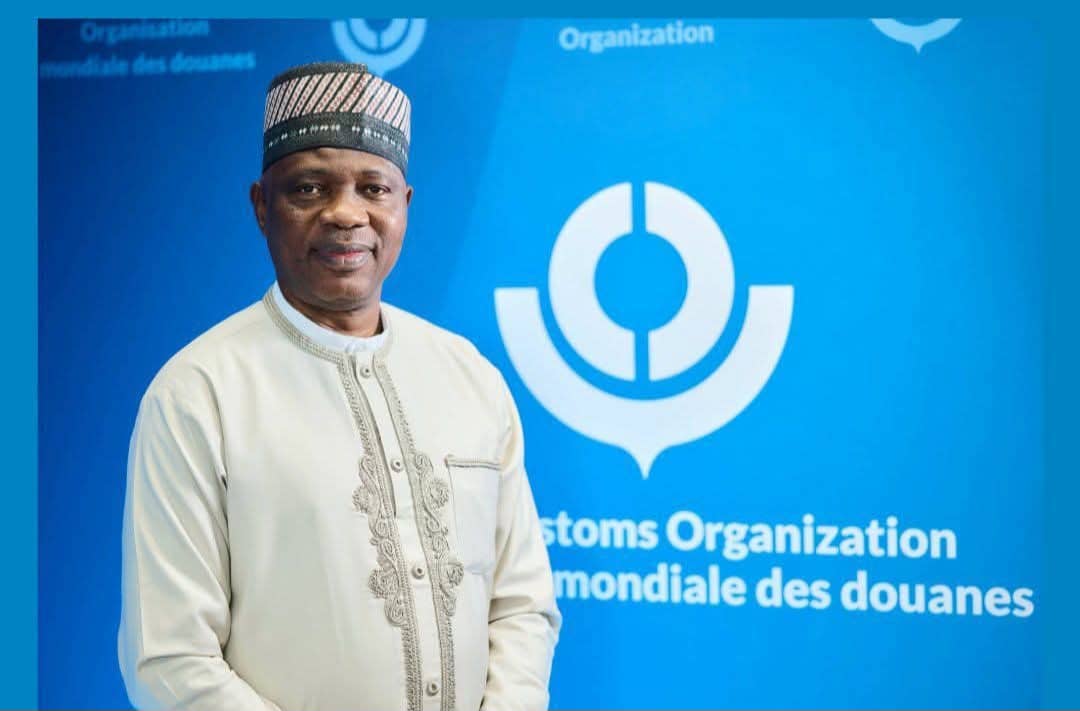
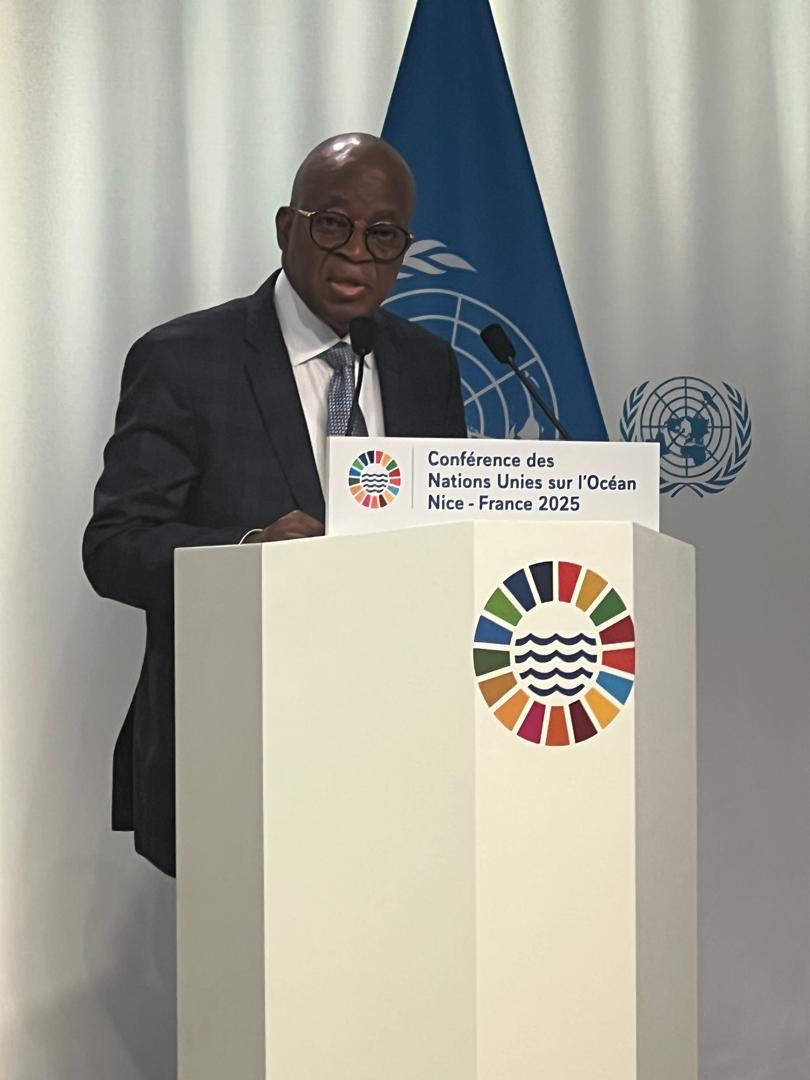
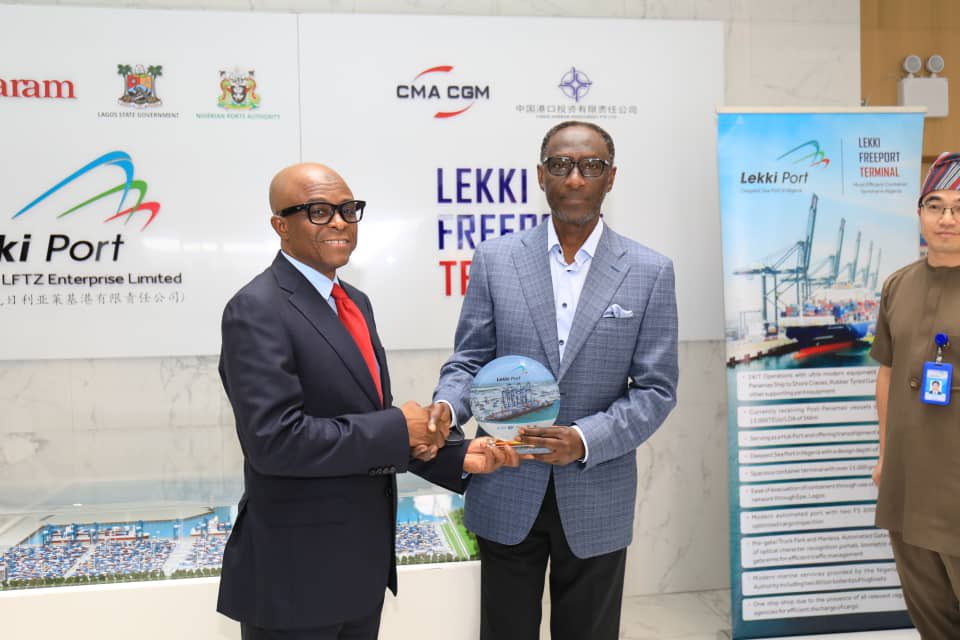
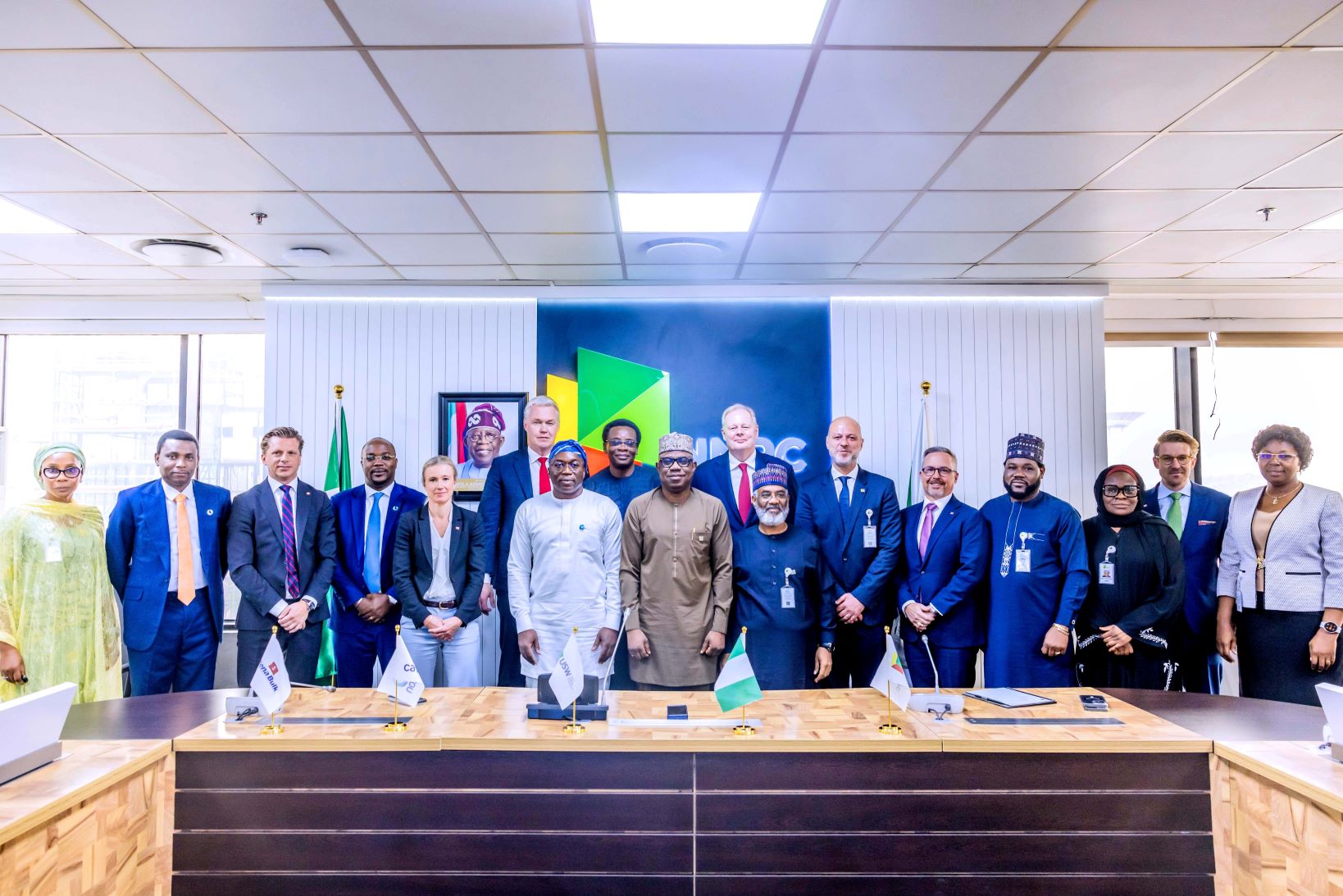






I attended Ikosi Methodist High School, I MHS, from 1972-1977 located inside the Rickett grove along Ikosi-Agbowa road. At that time we met carcasses of heavy machineries abandoned in the grove and most of the buildings were old structures apparently abandoned by the Ricketts. I personally had a very good memories of that era. God bless Rev. Ricketts
Sir
Thank you so much for your observation/comment .
I really appreciate.
Thank you and God bless
Betty Ricketts
The Ricketts surely have a rich history of laudable contribution to the development of Nigeria.
I wish my Akin Ricketts a successful and impactful tenure.
Mrs Betty Ricketts, please help me with a job. I have some experience in the logistics industry. You can contact me on WhatsApp or phone via 08132232989.
God will take you higher and higher.
The article did not mention Nigeria